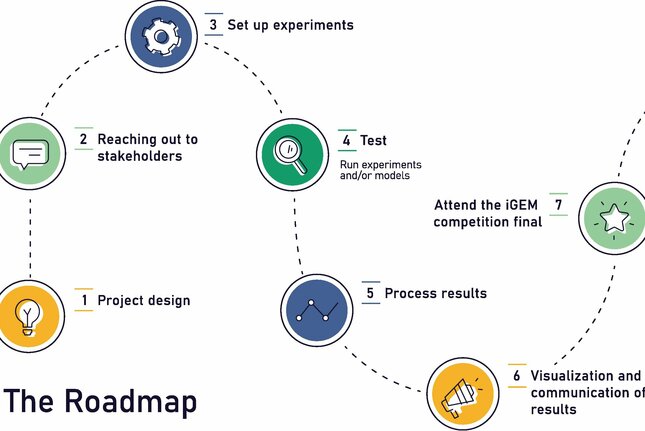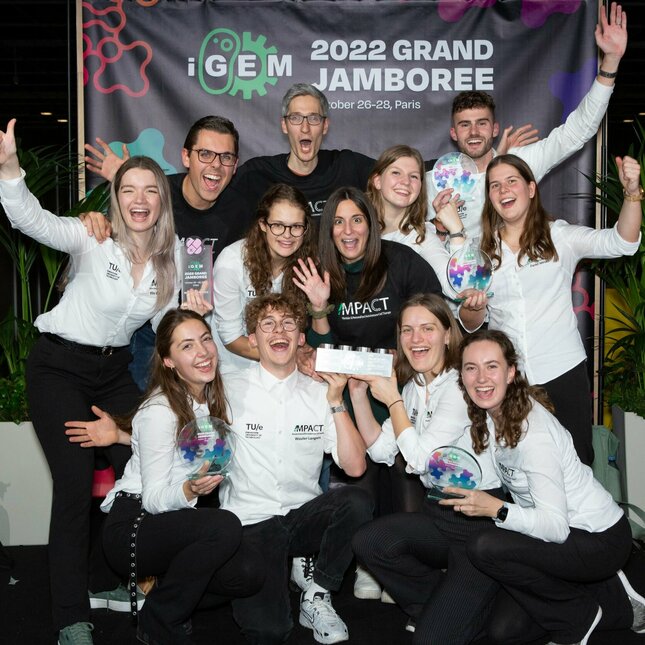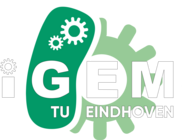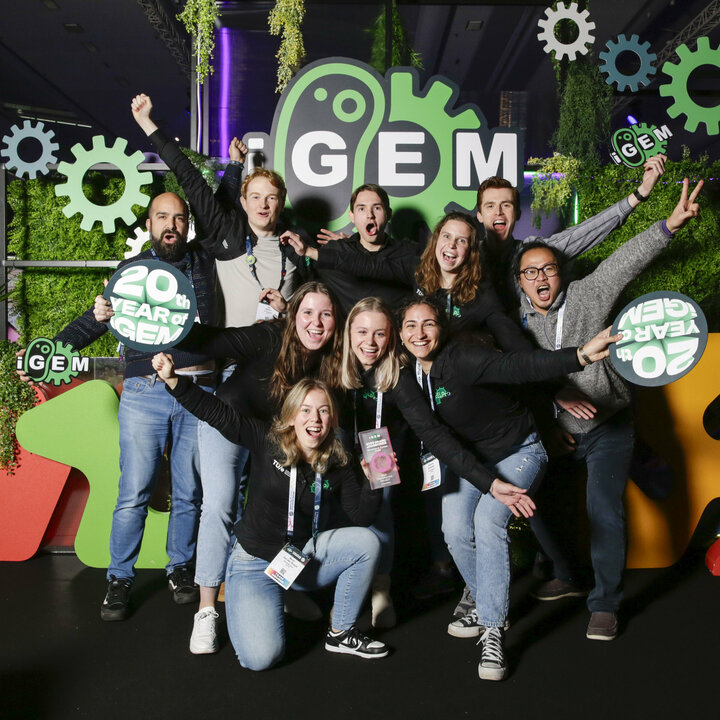About Us

Every year we participate in the world's largest International Genetic Engineered Machine (iGEM) Competition (350+ teams).
We tackle real-world problems using synthetic biology. Together with input from stakeholders we design, build, test, and measure a biological system to stimulate innovation in the field of healthcare.

In 2022 the team was very successful and won the Grand Prize Winner Undergrad, Best Therapeutics Project, Best Presentation, Best Integrated Human Practices, Best Supporting Entrepreneurship and Best Model.
In 2023 the grand Jamboree of 2023 will take place from 2nd – 5th of November.
Advancing synthetic biology
The iGEM competition was organized for the first time in 2003 by Massachusetts Institute of Technology . It has grown over the years and is now the largest synthetic biology competition, with more than 360 teams participating from all over the world. These teams include high schools, undergraduates, and/or graduated students, each competing in separate competition categories of the iGEM competition. The competition gives students the opportunity to apply their knowledge and push the boundaries of synthetic biology by tackling everyday issues in the world.
Since 2012, Eindhoven University of Technology has participated in the iGEM competition. Every year, a new student team works together to design, build, test and measure a system using interchangeable biological parts and standard biology techniques. With support from the academic staff of the Institute of Complex Molecular Systems, the Eindhoven teams have accomplished interesting results and even won prizes for Best New Application and Best Innovation in Measurement.
-
Team manager iGEM
Milou Meulendijks -
Postal address
student team iGEMTraverse 1.47 & 1.48PO Box 5135612AZ Eindhoventhe Netherlands -
Visiting address
Traverse 1.47 & 1.48De Zaale5612AZ Eindhoven

